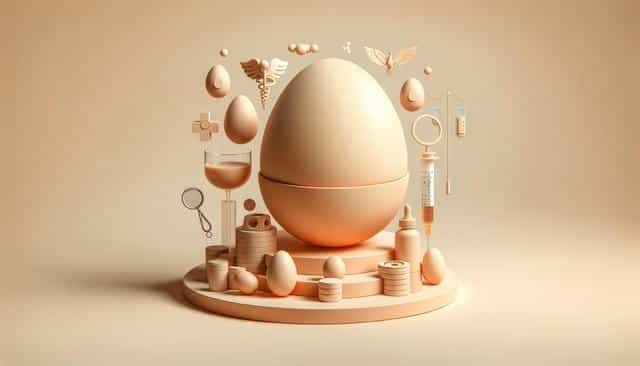The Egg Donation Process
Egg donation is a complex but rewarding journey that involves several detailed steps. Initially, potential donors undergo a rigorous selection process that includes comprehensive medical, psychological, and genetic screenings. This ensures that the donor is in optimal health and has no underlying conditions that could affect the donation. Once cleared, donors are matched with intended parents, setting the stage for the egg retrieval process.
The preparation period includes hormone treatments to stimulate the ovaries. This is crucial for ensuring the collection of multiple eggs, increasing the chances of successful fertilization. The actual egg retrieval procedure is minimally invasive, performed under sedation, and typically lasts about 20 to 30 minutes. Donors can generally return to their regular activities shortly after, with a follow-up to ensure their health and well-being.
Benefits and Implications of Egg Donation
Egg donation provides profound benefits that extend beyond fulfilling the dreams of intended parents. For donors, it offers a chance to make a meaningful contribution to someone else’s life. Many donors express a deep sense of fulfillment, knowing they have helped create a family. Additionally, donors receive compensation for their time and effort, which can be a significant financial aid.
However, it’s essential to understand the implications involved. Donors must be prepared for the physical and emotional aspects of the process. They should consider the commitment required, as well as potential short-term side effects of the hormone treatments like mood swings or bloating. Emotional support from friends, family, and professionals can be invaluable throughout this journey.
Legal and Ethical Considerations
The legal framework surrounding egg donation varies by country, affecting how the process is regulated and the rights of donors, recipients, and any resulting offspring. In many places, donors remain anonymous, although some regions allow open or known donations, where identities may be disclosed.
Ethically, the process raises questions about the motivations for donation, the selection criteria for donors and recipients, and the rights of the child born from donated eggs. It’s crucial for all parties involved to have clear agreements and understandings. Legal counsel and professional mediation can help navigate these complexities and ensure a transparent and consensual arrangement.
Choosing to Become an Egg Donor
For many, the decision to become an egg donor is significant and personal. Prospective donors should evaluate their motivations, health, and readiness to participate in the process. It is advisable to consult with healthcare providers to understand the medical aspects, as well as with counselors to discuss the emotional and psychological dimensions.
Eligibility criteria often include age restrictions, typically between 21 and 34 years old, a healthy BMI, and a non-smoker status. Potential donors should also consider their future family planning, as participation in egg donation can have implications for their own reproductive health.
Conclusion: Embracing the Gift of Life
Egg donation is more than just a medical procedure; it is a compassionate act that can transform lives. It offers a beacon of hope for those facing infertility challenges and allows donors to play a pivotal role in this life-giving process. By understanding the intricacies involved, donors and recipients can embark on this journey with confidence and mutual respect, paving the way for new beginnings.
